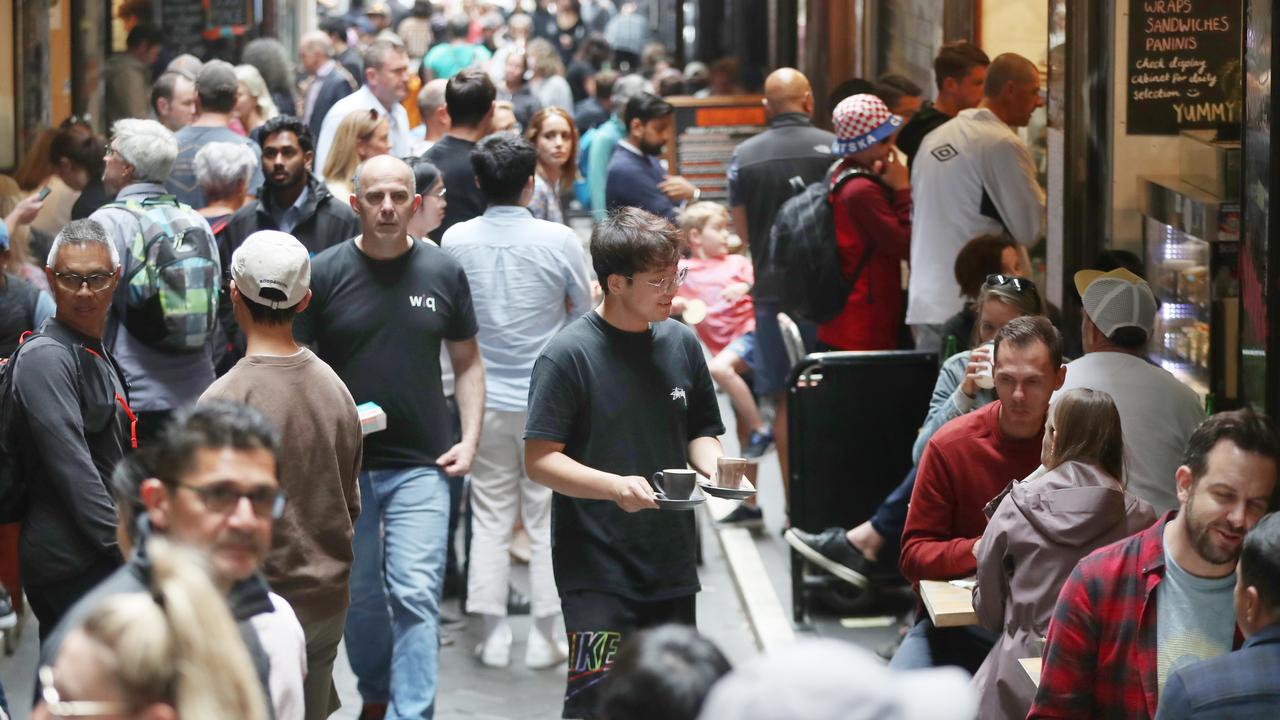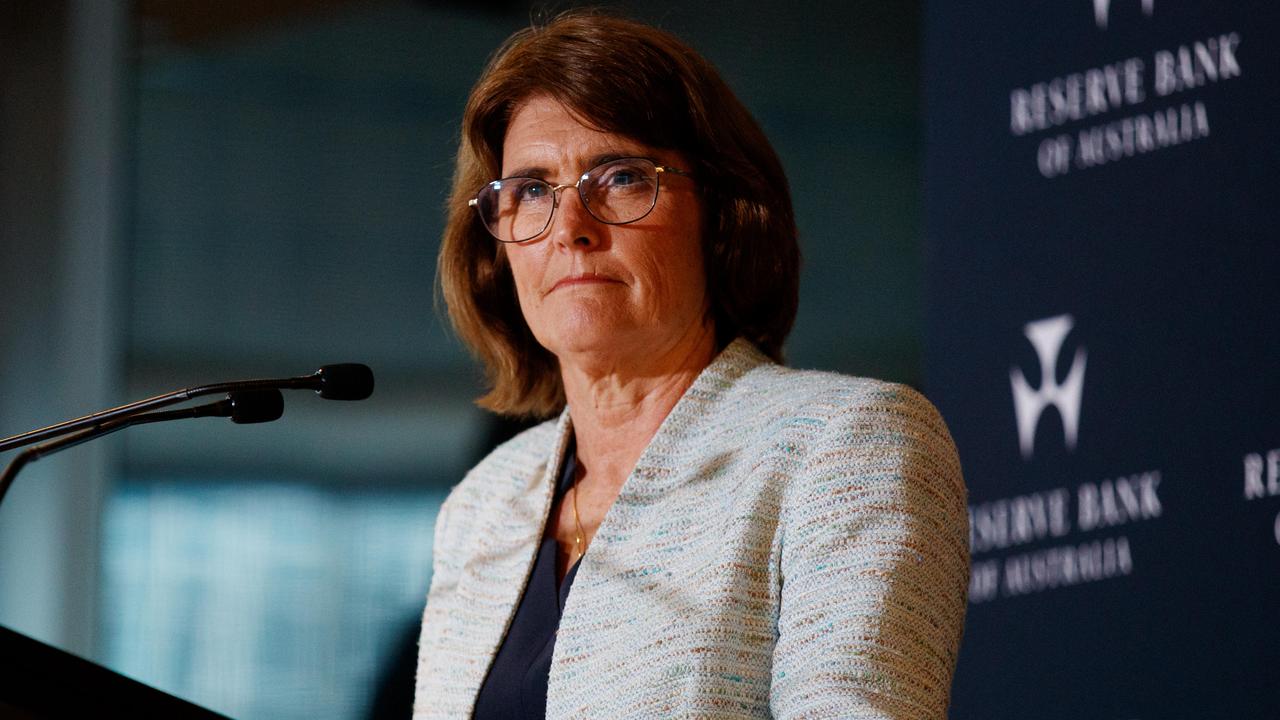US warning will terrify Aussie homeowners
In a move that could signal further disappointing news for homeowners here in Australia, our friends across the Pacific have made a big call.
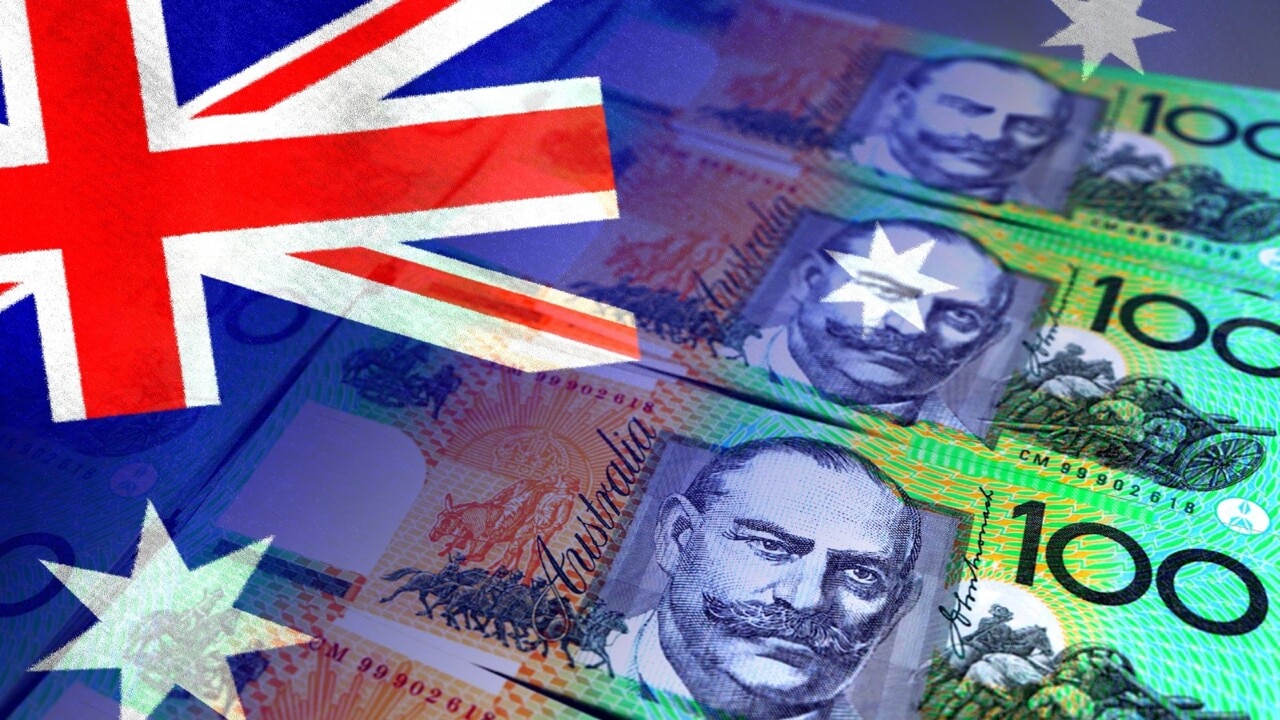
Interest Rates
Don't miss out on the headlines from Interest Rates. Followed categories will be added to My News.
In a move that could signal further disappointing news for homeowners here in Australia, our friends across the Pacific have signalled that high interest rates and inflation could be here for longer than expected.
In the US, a slowdown in inflation last year fuelled optimism that the first rate cuts were on the horizon.
This would have likely spelled good news for Aussies, as Australia’s interest rates have risen in tandem with the US and an cut would have instilled more confidence in the global economy.
However, that has now been shot down by the US Federal Reserve. Overnight it held interest rates steady for a sixth straight meeting, keeping the level at a 23-year high to fight stubborn price increases.
This is bad news for Australia, which is facing “exactly the same problems” as the US, according to Sky News Business Reporter Edward Boyd.
He said RBA Governor Michele Bullock is expected to cover “virtually the same topics” in her press conference, which is scheduled for next week.
“This is just a warning sign for us of what to expect next week,” he said.
In a warning overnight, the US Fed put a red flag on recent disappointing inflation readings and suggested an “uncertain” outlook means any rate cuts will likely be kicked further down the track.
After a two-day gathering, the central bank decided unanimously to keep the benchmark lending rate unchanged at 5.25-5.50 per cent, citing a “lack of further progress” towards its 2 per cent inflation target.

“The economic outlook is uncertain, and the Committee remains highly attentive to inflation risks,” the Fed said in a statement.
For months, the US central bank has held its benchmark lending rate at a high level to cool demand and rein in price increases — with a slowdown in inflation last year fuelling optimism that the first cuts were on the horizon.
But inflation has accelerated, throwing cold water on hopes of an early rate reduction.
The Fed said it does not expect to lower rates until it has “greater confidence” that inflation is moving sustainably towards its target.
Federal Reserve Chair Jerome Powell told a press conference: “It is likely that gaining such greater confidence will take longer than previously expected.”
While the central bank is prepared to hold rates steady for as long as appropriate, Mr Powell added that it is “unlikely that the next policy rate move will be a hike”.
Possible cuts?
The Fed’s statement does not significantly change the general outlook that a first rate cut will likely occur in September, said economist Ryan Sweet of Oxford Economics.
This is contingent upon inflation slowing, he added.
While markets see a September cut “as a coin flip”, a few good inflation reports could change the narrative, Mr Sweet said.
Wednesday’s statement also “contains no hawkish pivot in tone” — meaning there would be rate increases — noted Pantheon Macroeconomics chief economist Ian Shepherdson.
Policymakers instead “provided reassurance” by saying that risks to achieving the Fed’s employment and inflation goals have “moved toward better balance,” Mr Shepherdson said.
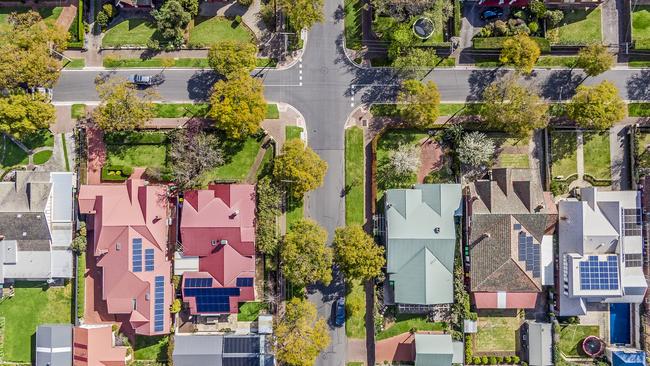
Analysts believe this means the door remains open to rate cuts in 2024. The Fed previously pencilled in three cuts this year but hotter-than-anticipated inflation has made things less certain.
Mr Shepherdson said, however, that “we see nothing in the statement that will prevent the Fed from pivoting to reducing interest rates multiple times this year” if conditions allow.
Mr Powell also said the Fed is prepared to respond to an “unexpected weakening” in the labour market.
If that market starts to flag, “the Fed could cut rates even with inflation above its two per cent goal to keep the jobs expansion going,” said Navy Federal Credit Union corporate economist Robert Frick.
Grim outlook for Australia
This all comes as one of Australia’s biggest banks has made a devastating prediction for Aussie homeowners.
After a series of RBA meetings that have resulted in the official cash rate being put on hold, Commonwealth Bank has warned the tide may be starting to turn in the favour of further rate hikes.
That’s not the only bad news if you have a mortgage.
CBA’s head of Australian economics, Gareth Aird, said on Tuesday that not only were further rate rises now a “near‑term risk”, but any cuts will also come slower than previously expected.
Most of the expected cuts will likely be pushed back to 2025, Mr Aird said.
He explained that strong population growth, driven by net overseas immigration, has put pressure on the Consumer Price Index.
“Most notably the housing‑related components,” Mr Aird wrote.
“As a result, demand is stronger and so inflation is falling less quickly than otherwise.”

He explained this means interest rates need to stay higher for longer to help bring inflation back down.
Rates were predicted to start dropping in September, but that has now been pushed back to November.
“The near‑term risk sits with an interest rate hike,” Mr Aird warned.
“But we expect the RBA to be on hold over the next six months.”
He predicted that “an easing cycle”, where the RBA begins to drop interest rates, could start in November this year, several months later than anticipated.
The RBA’s next policy meeting will be held on May 7.
Force the nation into recession, Aussies urged
Aussies are being urged to stop splashing cash on “Netflix, flat-whites, movies and eating out” to trigger a “DIY recession” that will save us from years of pain.
The extraordinary call from Bond University Associate Professor of quantitative finance Rand Low comes amid resurgent inflation in Australia, warnings of more rate hikes and fears of escalating conflicts in Ukraine and the Middle-East.
Dr Low argues everyday Australians need to cut back on “discretionary spending” so that we can collectively drive the nation into a recession — one that he claims would be “short-lived”.
He said that if we don’t do this we would likely suffer from a “very severe recession” that may take many years for us to get out of.
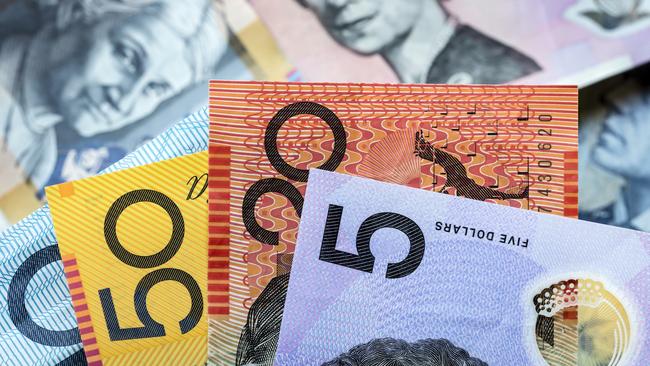
“It’s true that if we eat out less, buy less ‘stuff’ it will impact the economy and drive it into a recession,” he said. “But what we are looking for is that it may be necessary to have a slight recession for maybe a year or so, rather than a ‘deep’ recession that may last several years.”
Aussies tightening the belt
In a sign that interest rates and inflation are biting Aussies, supermarket giant Woolworths faced a “challenging” March quarter amid shifting spending by shoppers and continued criticism over its price settings.
Reporting its March quarter results on Thursday, the retailer posted total sales of $16.8 billion for the period, up 2.8 per cent year-on-year.
The result was buoyed by its Australian food division, which reported sales growth of 1.5 per cent to $12.6b, while its local business-to-business segment grew 3.2 per cent to $1.1b.
Sales across its New Zealand supermarket operations were more subdued, rising 1.4 per cent to $A1.9b.
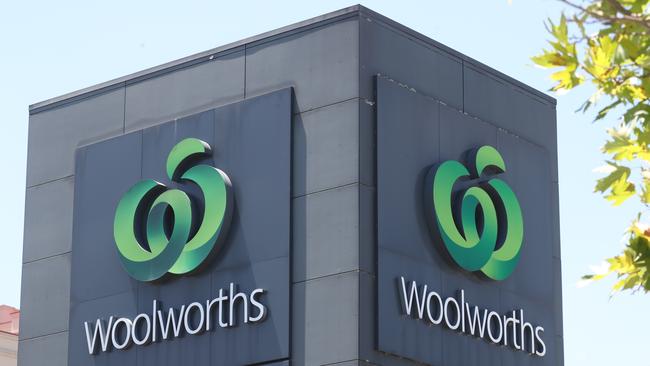
Despite the uptick in sales across its supermarket segment, turnover at discount department store Big W slipped 4.1 per cent from the year prior to $1bn in the March quarter, reflecting heightened consumer caution.
Outgoing Woolworths chief Brad Banducci said consumer sentiment in Australia and New Zealand has been weak for some time, with customers facing elevated living costs.
“Since Christmas we have seen a noticeable change in consumer behaviour as customers have adjusted their budgets and spending following the holiday period,” Mr Banducci said.
“We expect trading conditions to be challenging for the next 12 months due to competition for customer shopping baskets and as inflation returns to a very low single digit range.
“However, we are well positioned to manage this more challenging environment through an ongoing focus on our customers and team, and our end-to-end productivity plan.”
— with AFP and NCA NewsWire
Originally published as US warning will terrify Aussie homeowners




